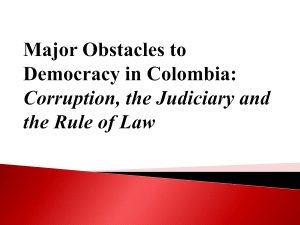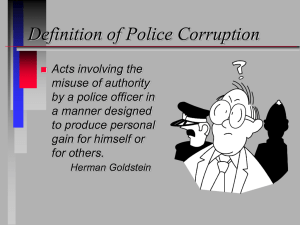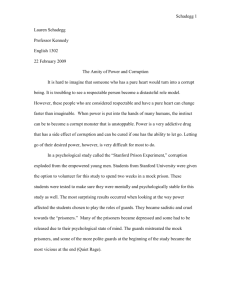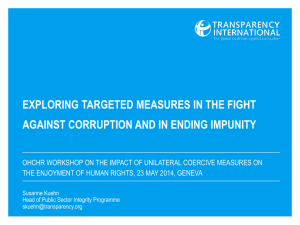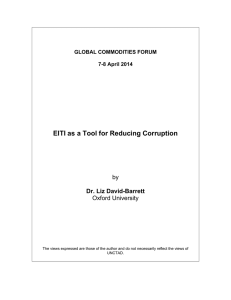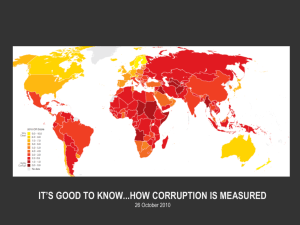BEACONS Annual Lecture
advertisement
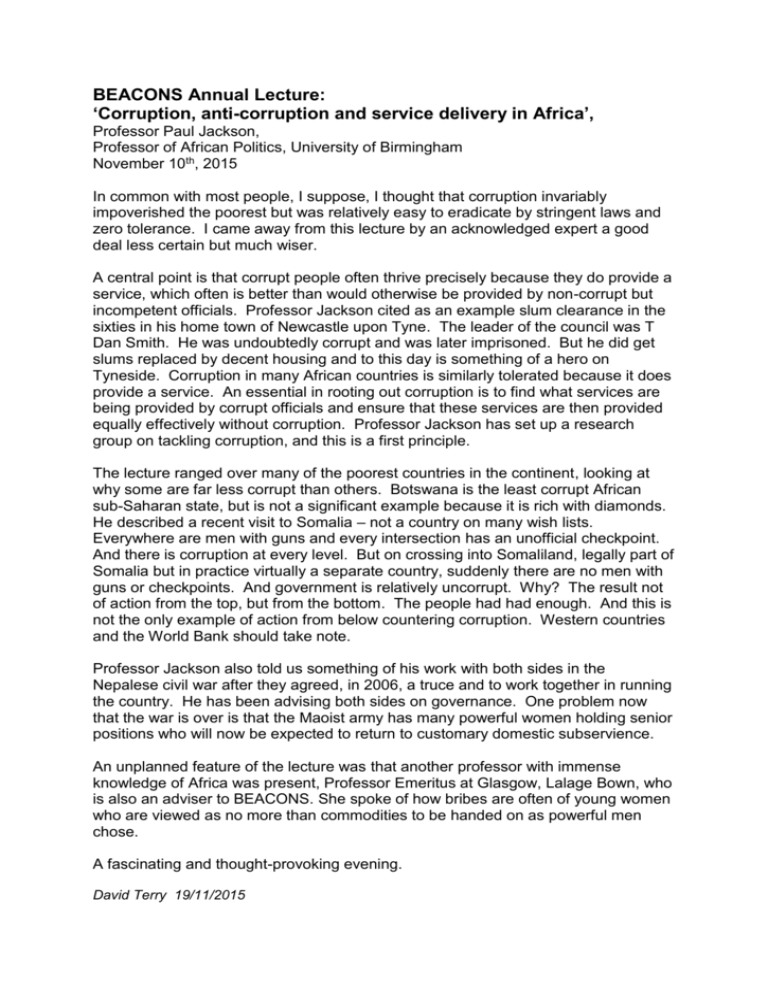
BEACONS Annual Lecture: ‘Corruption, anti-corruption and service delivery in Africa’, Professor Paul Jackson, Professor of African Politics, University of Birmingham November 10th, 2015 In common with most people, I suppose, I thought that corruption invariably impoverished the poorest but was relatively easy to eradicate by stringent laws and zero tolerance. I came away from this lecture by an acknowledged expert a good deal less certain but much wiser. A central point is that corrupt people often thrive precisely because they do provide a service, which often is better than would otherwise be provided by non-corrupt but incompetent officials. Professor Jackson cited as an example slum clearance in the sixties in his home town of Newcastle upon Tyne. The leader of the council was T Dan Smith. He was undoubtedly corrupt and was later imprisoned. But he did get slums replaced by decent housing and to this day is something of a hero on Tyneside. Corruption in many African countries is similarly tolerated because it does provide a service. An essential in rooting out corruption is to find what services are being provided by corrupt officials and ensure that these services are then provided equally effectively without corruption. Professor Jackson has set up a research group on tackling corruption, and this is a first principle. The lecture ranged over many of the poorest countries in the continent, looking at why some are far less corrupt than others. Botswana is the least corrupt African sub-Saharan state, but is not a significant example because it is rich with diamonds. He described a recent visit to Somalia – not a country on many wish lists. Everywhere are men with guns and every intersection has an unofficial checkpoint. And there is corruption at every level. But on crossing into Somaliland, legally part of Somalia but in practice virtually a separate country, suddenly there are no men with guns or checkpoints. And government is relatively uncorrupt. Why? The result not of action from the top, but from the bottom. The people had had enough. And this is not the only example of action from below countering corruption. Western countries and the World Bank should take note. Professor Jackson also told us something of his work with both sides in the Nepalese civil war after they agreed, in 2006, a truce and to work together in running the country. He has been advising both sides on governance. One problem now that the war is over is that the Maoist army has many powerful women holding senior positions who will now be expected to return to customary domestic subservience. An unplanned feature of the lecture was that another professor with immense knowledge of Africa was present, Professor Emeritus at Glasgow, Lalage Bown, who is also an adviser to BEACONS. She spoke of how bribes are often of young women who are viewed as no more than commodities to be handed on as powerful men chose. A fascinating and thought-provoking evening. David Terry 19/11/2015


![Jon Benton, SCSC Conference, 9 Sept 14 [PPT 784.00KB]](http://s2.studylib.net/store/data/014996354_1-4ebfe463a2218427046b56da15d0c678-300x300.png)
